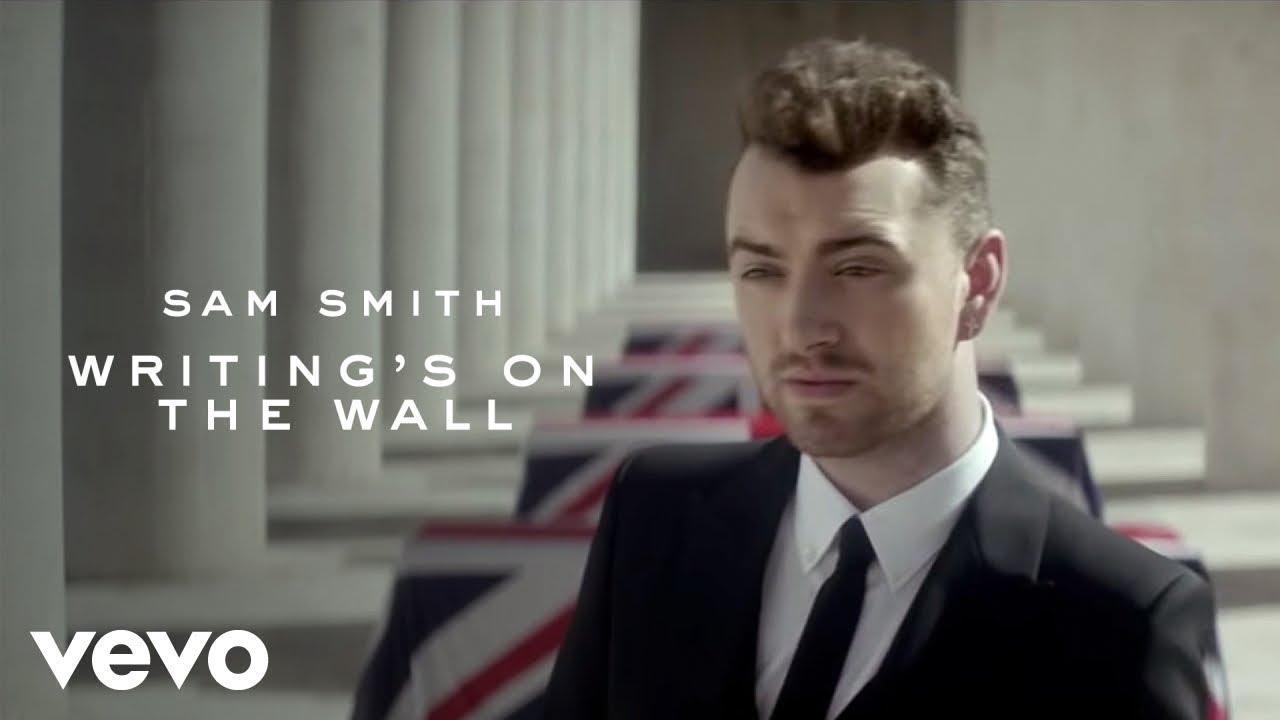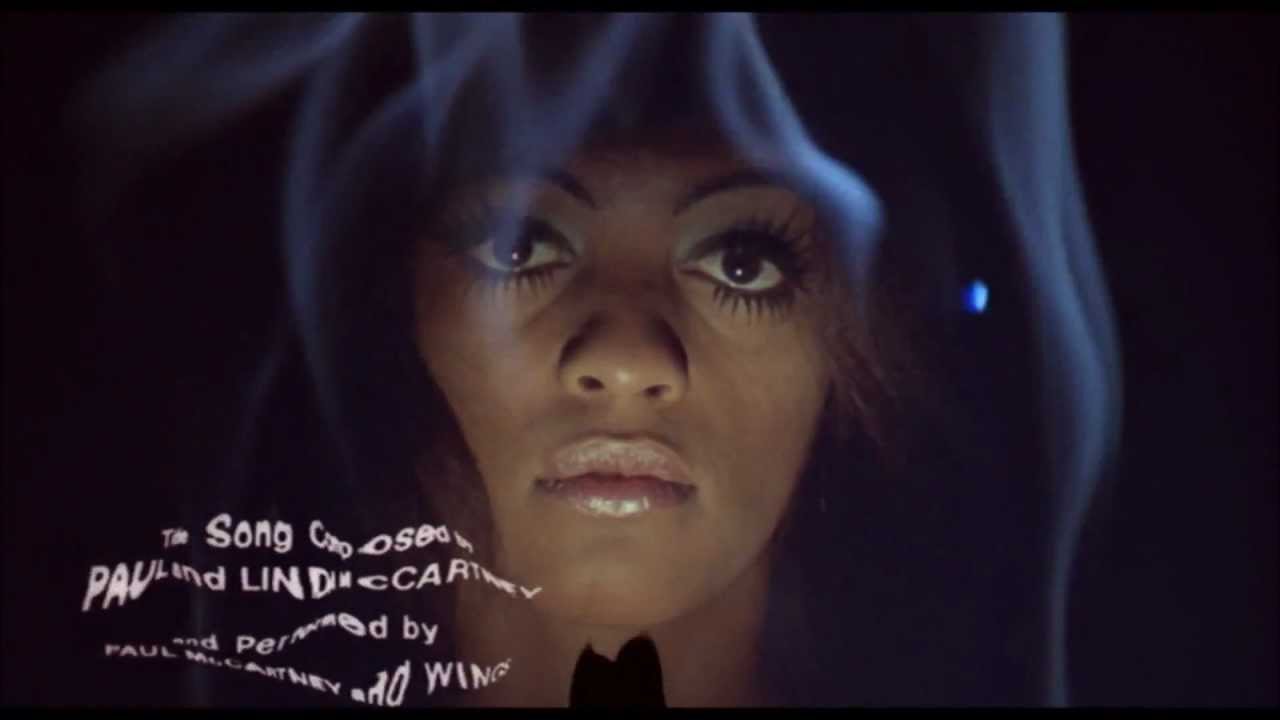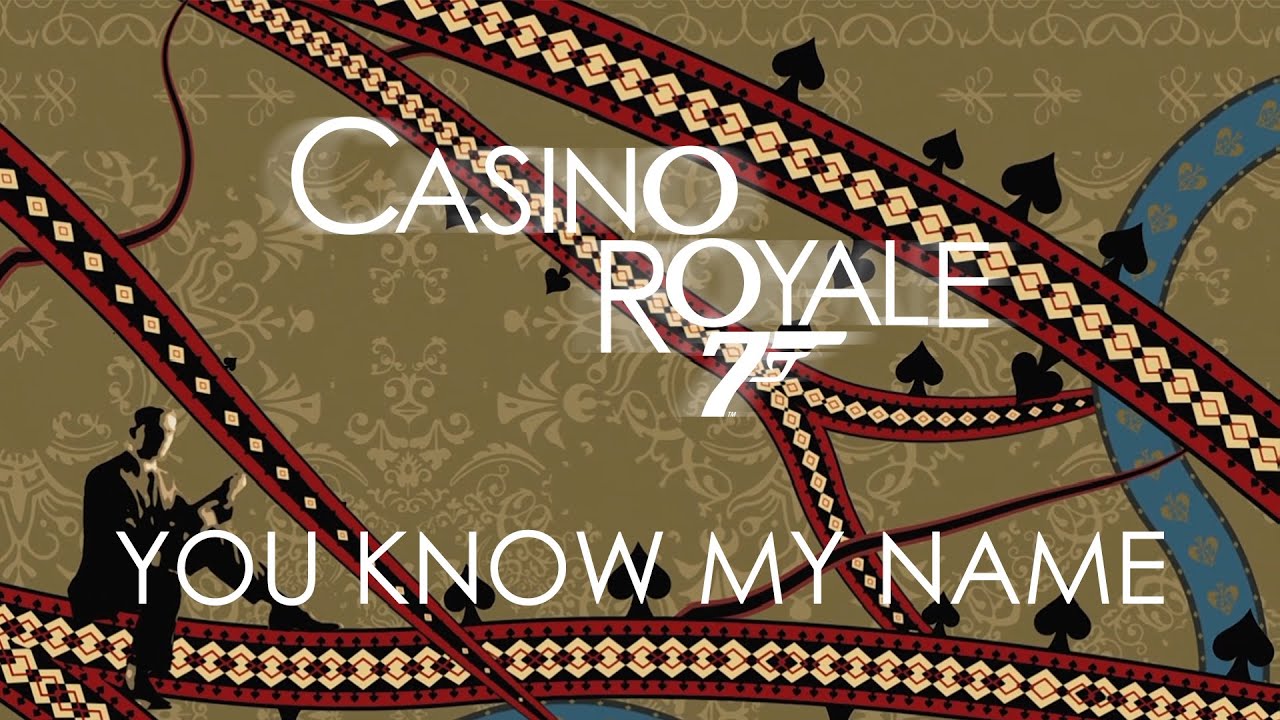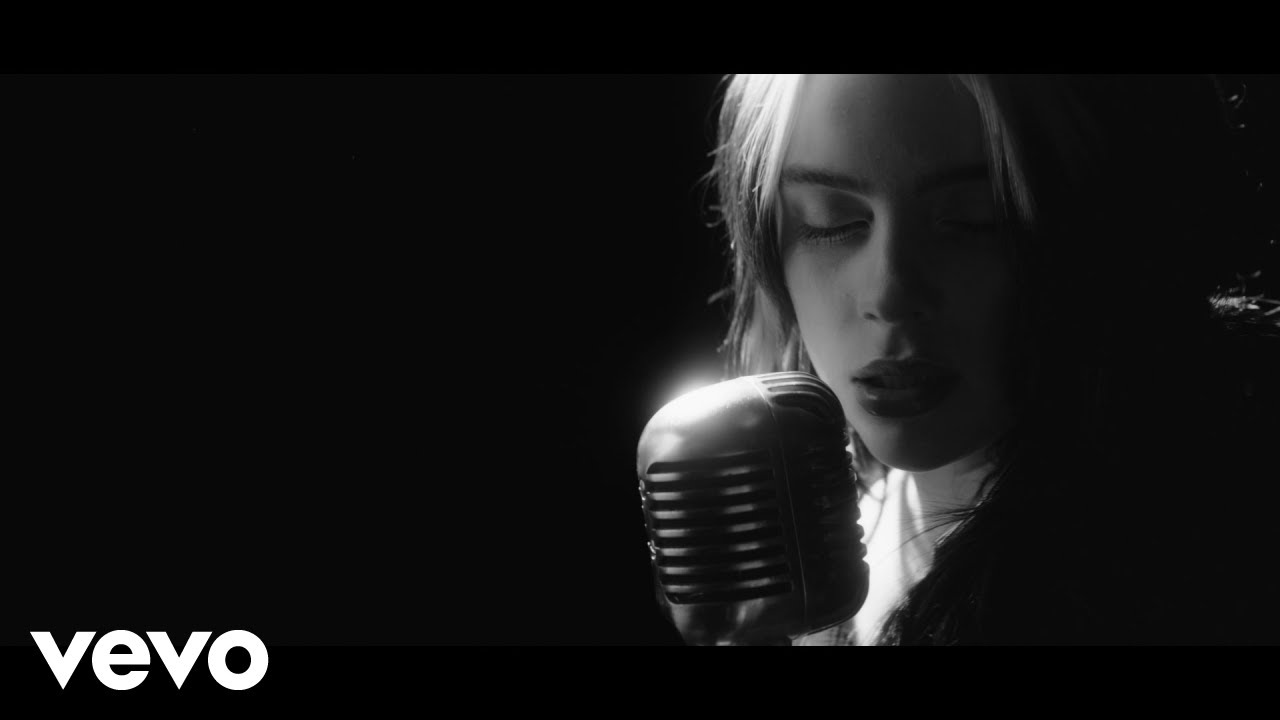Songs. Bond songs. Spanning half a century and 25 tracks (plus plenty more that didn’t make the cut), they form a genre all of their own. Boasting some of the biggest names in music, they are as much of a pop culture institution as James Bond himself.
Fans have expectations when it comes to James Bond. Intrigue, action, sex, glamourous locations, vodka martinis, nefarious yet uncannily incompetent villains. The same is true of the franchise’s theme songs. Over the years, certain tropes have become inseparable from the formula. If songs play it too safe they’re boring; if they push too far they’re disowned.
The Bond song magic bubbles in the space between formulas and experimentation, between class and kitsch. They are made in a spirit that goes all the way back to Ian Fleming and the original James Bond books. Writing in 1962, Fleming said: “If you decide to become a professional writer, you must, broadly speaking, decide whether you wish to write for fame, for pleasure or for money. I write, unashamedly, for pleasure and money.”
Hold on to that. Fleming was the first to admit that the James Bond franchise is not high art. While the target of some books are the head or the heart, Fleming’s target “lay somewhere between the solar plexus and, well, the upper thigh.” When his work stumbled into the realm of great literature, all the better, but that was not his goal. Fleming noted that where some might consider themselves “Authors”, he considered himself a “Writer” — a kind of craftsman. His stories had a function: ensure the audience turns the page. That plays out in the books, in the films, and in the theme songs.
The formula of a Bond song has been refined over the decades, and listeners recognise it when they hear it. Like the films, the songs offer spectacles which tick certain boxes. These were covered in-depth by Adrian Daub and Charles Kronengold, who in 2015 published The James Bond Songs: Pop Songs of Late Capitalism.
“It’s very much an old fashioned model of how to make a song,” Kronengold says. “It’s melody-first, voice-first pop song construction in an era when those things have been subject to a lot of questioning. This is not music where you start with a groove and build a vocal line above that.” Bond song instrumentation is built around melody, usually of the belting variety. From Carly Simon’s soaring ballad ‘Nobody Does It Better’ for The Spy Who Loved Me to Adele’s powerhouse performance in ‘Skyfall’, the singer takes centre stage. Bonus points if they end on a supernova high note – Tom Jones even passed out recording the last note of ‘Thunderball’.
The singer in question is usually a woman. Of the 25 Bond songs to date, 15 ½ were sung by women (the ½ being ‘Another Way to Die’, a duet between Alicia Keys and Jack White). Shirley Bassey looms large. The Welsh singer has sung three separate Bond themes, including fan favourites ‘Goldfinger’ and ‘Diamonds Are Forever’. “It doesn’t have to be a female singer,” Kronengold says, “But I think the sound of Shirley Bassey’s voice is always in the forefront of anyone making Bond songs.” The power and (seemingly) effortless resonance of her voice makes it a natural fit for Bond’s theatricality. When Shirley Bassey’s on form, it’s like listening to a particularly sassy Shakespearian monologue.
And the instrumentation? Big-band fare. Brass and strings all over the shop. Going all the way back to the original theme, Bond music has always been pretty, well, horny. Written by Monty Norman and arranged by John Barry, the “James Bond Theme”is a hot mess of surf guitar and brass. It’s classic Bond. As well as composing most of the early films’ scores, John Barry wrote or co-wrote most of the theme songs. His taste for lush, jazzy arrangements of brass and strings were woven into the fabric of Bond’s sound. If Shirley Bassey set the vocal blueprint, then the original theme set the instrumental one.
It’s not unusual for songs to also feature the famous four-note “suspense motif” (‘Skyfall’ snuck it in very smoothly) but it’s not as important as big-band splendor is. Between soaring vocals, driving melodies, and downright dirty big-band arrangements, the core of Bond’s sound offers guaranteed swagger and style.
This makes it doubly entertaining that another essential element of Bond songs is comical wordplay. Every time a new Bond film is announced, one of the first questions is, How are they going to shoehorn that name into the theme song? Some fare better than others. ‘Live and Let Die’ does it brilliantly, the booming chorus earning icon status in its own right, while ‘Nobody Does It Better’ does an admirable job of getting “the spy who loved me” into the chorus. Occasionally, a film’s name is so ludicrous that it doesn’t feature in the song at all (Octopussy and Quantum of Solace come to mind) but they are the exceptions that prove the rule.
Double entendres are generally limited to the films, but they muscle into the themes from time to time. ‘The Man with the Golden Gun’ is probably the most egregious example. One can only imagine what Scottish singer-songwriter Lulu thought when she saw what she’d be singing. Between talk of powerful weapons and musings on who’ll be banged next, it’s not exactly the most suave Bond song going. In hindsight Lulu thought it was the worst ever, and even John Barry grew to hate it. Lyrics here, for the uninitiated.
Many of these core elements can be traced back to ‘Goldfinger’, which is still generally regarded as ground zero. The song routinely features in the top three, across rankings and fan polls. A lot of Bond songs since then have been chasing the dragon, trying and failing to replicate its splendour. ‘Skyfall’ goes all in on that throwback sound and is generally regarded as the best modern theme. Bond lyricist Don Black once quipped, “Shirley should sing them all.” If that’s not possible, you can at least sound like her. When in doubt, revert to the essential recipe – most of the time.
But as Adrian Daub says, “There can be songs where everything fits like a glove and they’re incredibly boring and undynamic.” Sam Smith’s effort, ‘Writing’s on the Wall’ was the whole package — luscious strings, a legion of brass, soaring vocals — but fan reception was mixed. Similarly, ‘The World Is Not Enough’ (which was written by Bond composer David Arnold and performed by rock band Garbage) had all the classic elements but is hardly considered a classic. Pitchfork called the song “a predictable ‘Goldfinger’ permutation.” Bond themes that stick closely to the beaten path seldom capture fans’ imaginations.
To get to the root of why, we need to revisit Fleming’s earlier declaration. He was a page-turner, the films are spectacles, and the songs are products: tunes for hire. The songs acknowledging the situation and playing with it tend to be better received than the ones that treat it like a serious artistic statement. James Bond is a fantasy. His stories, as Fleming puts it, are “for warm-blooded heterosexuals in railway trains, airplanes and beds.” Bond drinks, he shags, and he saves the world. Nefarious villains are defeated and exotic locations are travelled to. This will always be the case. Like with Bond himself, if you give the theme songs too much sincere prestige you’re doomed to be disappointed. As Daub says, “The best songs play by different rules. It’s really important that they invert or ironise or transform what’s going on around them.”
In concrete terms? It means breaking away from the formula. ‘Live and Let Die’ shows a fine example. The brass tsunami of the chorus is classic Bond, but let’s not forget it also has a reggae section written by Linda McCartney that slows the tempo right down, and kicks back with some keyboard and flickering guitar. It’s like ten seconds of one song was dropped slap bang in the middle of another, and it works brilliantly. Around that the rumbling, tumbling instrumental interludes also stray from the beaten path. Although their horns are standard fare, the mallet percussion and near-psychedelic string arrangements certainly aren’t. Even by Bond standards the track is quite atypical, and it’s safe to say Paul McCartney didn’t agonise over its composition:
“I read the Live and Let Die book in one day, started writing it that evening and carried on the next day and finished it by the next evening … Linda wrote the middle reggae bit of the song. We rehearsed it as a band, recorded it and then left it up to [George Martin].”
Another highly regarded tune, ‘Nobody Does It Better’, was a straight-up power ballad — sentimental and melody-driven. Brass was entirely stripped out in favour of piano and booming rock drums. Incidentally, it was also the first dedicated song not to share its name with the film. Duran Duran’s ‘A View to Kill’, which remains the only Bond theme to top the US Billboard Hot 100, came about when the band’s bassist went up to Bond producer Cubby Broccoli at a party and drunkenly asked him when someone decent would be allowed to record a song for the franchise.
As Ian Fleming laid out more than 50 years ago, there is a simplicity to the Bond spirit, and the songs that embrace it tend to feel more appropriate to the franchise than the ones that don’t. Kronengold and Daub call this ‘owning the scar tissue’. “This isn’t the song the artist really wanted to sing,” Daub says. “This is the song they are going to be paid the most money to sing at this point in their career.” There’s no real pretense of depth, and that frees up the artist to let loose.
“It’s when you can tell that the singer is maybe not at their happiest doing this kind of work for hire that they can actually say really interesting things about work for hire,” Daub says. “Like being James Bond.”
Dissonance is built into the Bond franchise. It’s lavish and exotic and sexy at the same time as it’s absurd and inelegant and backward, based as it is on a bygone era of Cold War espionage. It’s schlock, but A-list schlock, the best in the game. The songs that accept they’re part of that game tend to age the best.
“They’re handled as if they’re precious goods, when everybody at any level – performer, listener, composer – knows that it’s kind of a joke and that these are really ridiculous lyrics and they’re not supposed to be taken seriously,” Kronengold says. “But the song frames them as if they’re talismanic property. That’s a big part of the formula too I think.
“There needs to be something a little bit off, but not too much.” What that something is varies. For ‘Live and Let Die’ it’s the medley composition and tempo changes. For ‘Nobody Does It Better’ it was the pivot towards a pop ballad sound. For Casino Royale’s theme, ‘You Know My Name’, it was Chris Cornell’s rough, grungy delivery and guitar-driven arrangements, which felt a natural fit for Daniel Craig’s more tortured rendition of the Bond character.
The themes do occasionally go too far. Bad Bond songs are almost as renowned as the good ones are. Some, like ‘The Man With the Golden Gun’, are panned as caricatures of the classic sound, while others veer so far off that they simply can’t be reconciled with the franchise. Although widely panned by fans, the likes of ‘Die Another Day’ and ‘Another Way to Die’ are in many respects much closer to the spirit of Bond than by-the-numbers homages are. Electronic dance tracks and alt-rock duets may not fit the classic Bond formula, but they’re nothing if not audacious. Like ‘Live and Let Die’, they’re trying to do something novel, something memorable. They just get it a bit wrong.
Daub agrees concerning ‘Another Way to Die’. “That song is flying pretty freaking close to the sun,” he says. “I can’t tell if it totally falls apart or if it totally works, but there’s an energy to that.” Similarly, Kronengold jokes that he and Daub may be “alone on this planet” in liking Madonna’s entry into the series.
In the world of Bond, the worst thing you can be is boring. If you have to please producers, advertisers, directors, composers, audiences, and so on, why not at least inject a little originality? Flip the script with a reggae section or a duet. Veer off into a different genre. It may not always work, but it will be nothing if not memorable, and the ones that pull it off will join the greats. To hark back to Fleming, if you become responsible for a Bond song, you must, broadly speaking, decide whether you’re willing to perform for pleasure and money equally. There’s no shame in deciding you are.
It’s reassuring, then, to have seen such a positive response to Billie Eilish’s effort. When it was announced she’d be performing the theme for Daniel Craig’s final outing, No Time to Die, there were some raised eyebrows, but a fair bit of optimism as well. Her gentle vocals and dark pop aesthetic are a world away from the likes of Shirley Bassey, Nancy Sinatra, and Tina Turner. “It’s heartening,” Kronengold says. “She’s not an obvious candidate like Adele and Sam Smith.” Daub agreed, saying, “It may well be a little jarring, a little strange, a little new, and some people will hate it, but I think that would be really wonderful.”
‘No Time to Die’ rides that line between old and new beautifully. Its slow, husky delivery very much shows Eilish’s stamp on proceedings, but space is still made for many of the Bond hallmarks. There are splashes of Monty Norman’s famous theme, and she duly reaches a haunting crescendo. The central four-note piano riff even sounds like a gentle inversion of the ‘suspense motif.’ The song continues a run of themes in keeping with Daniel Craig’s more solemn character, but it’s the furthest thing from dour. When the dust settles, it has every chance of joining the fan favourites.
Strangeness and newness are as integral to Bond themes as their predictability. It’s a risky, often absurd job, but entirely necessary. At 18, Billie Eilish is the youngest person ever to record a Bond song. With her entering the scene at the same time Daniel Craig is bowing out, we may be on the cusp of a younger, more vibrant generation of Bond songs. Whoever the task falls to, the tension will be the same — paying homage to the franchise, yet bringing something fresh after more than half a century of action. They have to be what the franchise has always been at its best: audacious.







